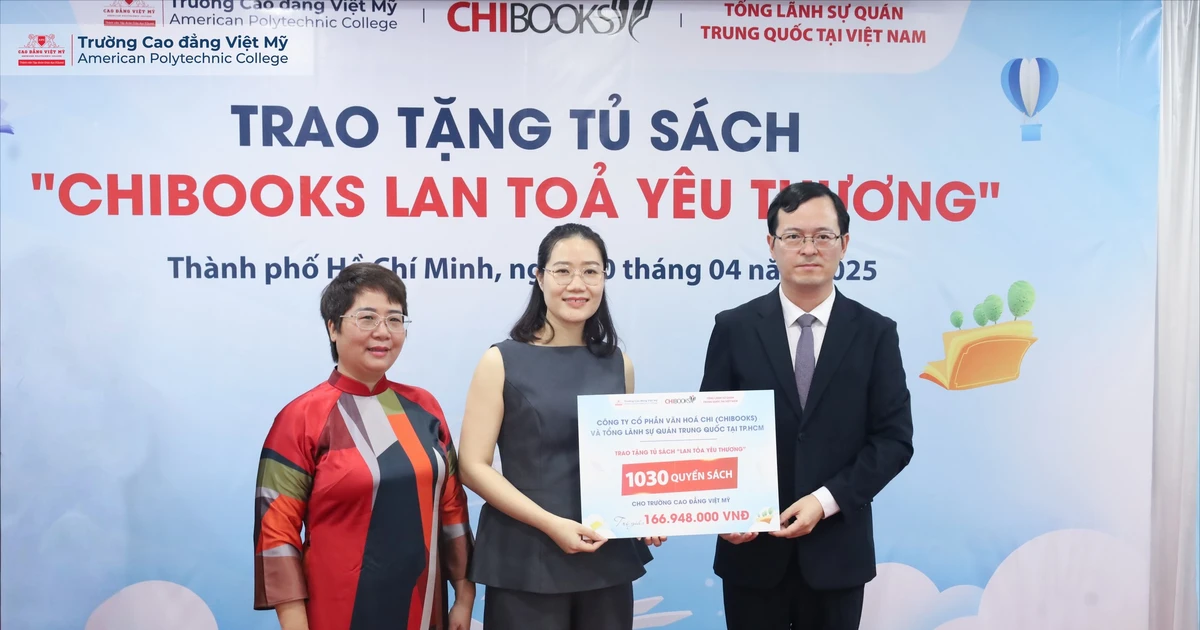SGGP
In the context of unsatisfactory income and the economy not yet fully recovered, Chinese people have gradually abandoned their foreign preference and switched to using good quality domestic products.
 |
| Chinese people choose domestic phone products |
According to a survey released by PwC in October, Chinese consumers’ decisions are influenced more by personal finances than any other factor, with 51% of Chinese consumers saying they are limiting their spending due to the current economic situation.
Five years ago, the country’s consumer market was dominated by foreign brands. Domestic brands struggled to compete, often suffering from low quality and poor marketing. But now many domestic brands are popular in supermarkets and shopping malls.
At the same time, their reputation for quality, design and merchandising techniques improves as they adapt to rapidly changing consumer tastes. Domestic products have the opportunity to develop into substitutes thanks to their more competitive prices compared to foreign brands.
In addition to good prices and trust in quality, Chinese consumers' shopping habits are changing in part thanks to younger customers. They are increasingly open to new brands.
Domestic brands in cosmetics, clothing, and home appliances are seeing steady gains in market share. Online consumers favored domestic brands in certain categories in the first half of this year, with more than 70 percent of shoppers choosing domestic fashion apparel and more than 90 percent choosing snacks and drinks from domestic companies, according to a report in August by Beijing-based research consultancy EqualOcean.
China’s fast-growing livestreaming industry has also been a boon for domestic products. Any good domestic product can become a domestic consumption trend. As a result, domestic manufacturers have seen their sales soar, with some brands even “selling out” recently.
To quickly gain market share, domestic manufacturers are constantly improving product designs. Two sportswear brands, Li Ning and Anta Sports, are investing in new production lines. American consulting firm Morgan Stanley predicts that the market share of these two brands will reach 22% by 2024. Compared to Adidas and Nike, Chinese consumers consider Li Ning and Anta Sports products to be more value for money, when comparing quality with price.
Chinese economists say this is a positive trend that could spur upstream production in China. However, some argue that in the long run, this will require an overall improvement in consumer confidence.
Although domestic products are becoming more attractive, they still have a big gap to fill before they can compete directly with international brands.
While consumers are appreciating the cost-effectiveness and safety of domestic brands, it is important for businesses to focus on improving product quality, as well as unique features to have a long-term presence in the global market.
Source



![[Photo] Unique folk games at Chuong Village Festival](https://vstatic.vietnam.vn/vietnam/resource/IMAGE/2025/4/10/cff805a06fdd443b9474c017f98075a4)

![[Photo] Prime Minister Pham Minh Chinh chairs meeting to discuss tax solutions for Vietnam's import and export goods](https://vstatic.vietnam.vn/vietnam/resource/IMAGE/2025/4/10/19b9ed81ca2940b79fb8a0b9ccef539a)
![[Photo] Phuc Tho mulberry season – Sweet fruit from green agriculture](https://vstatic.vietnam.vn/vietnam/resource/IMAGE/2025/4/10/1710a51d63c84a5a92de1b9b4caaf3e5)



























































































Comment (0)